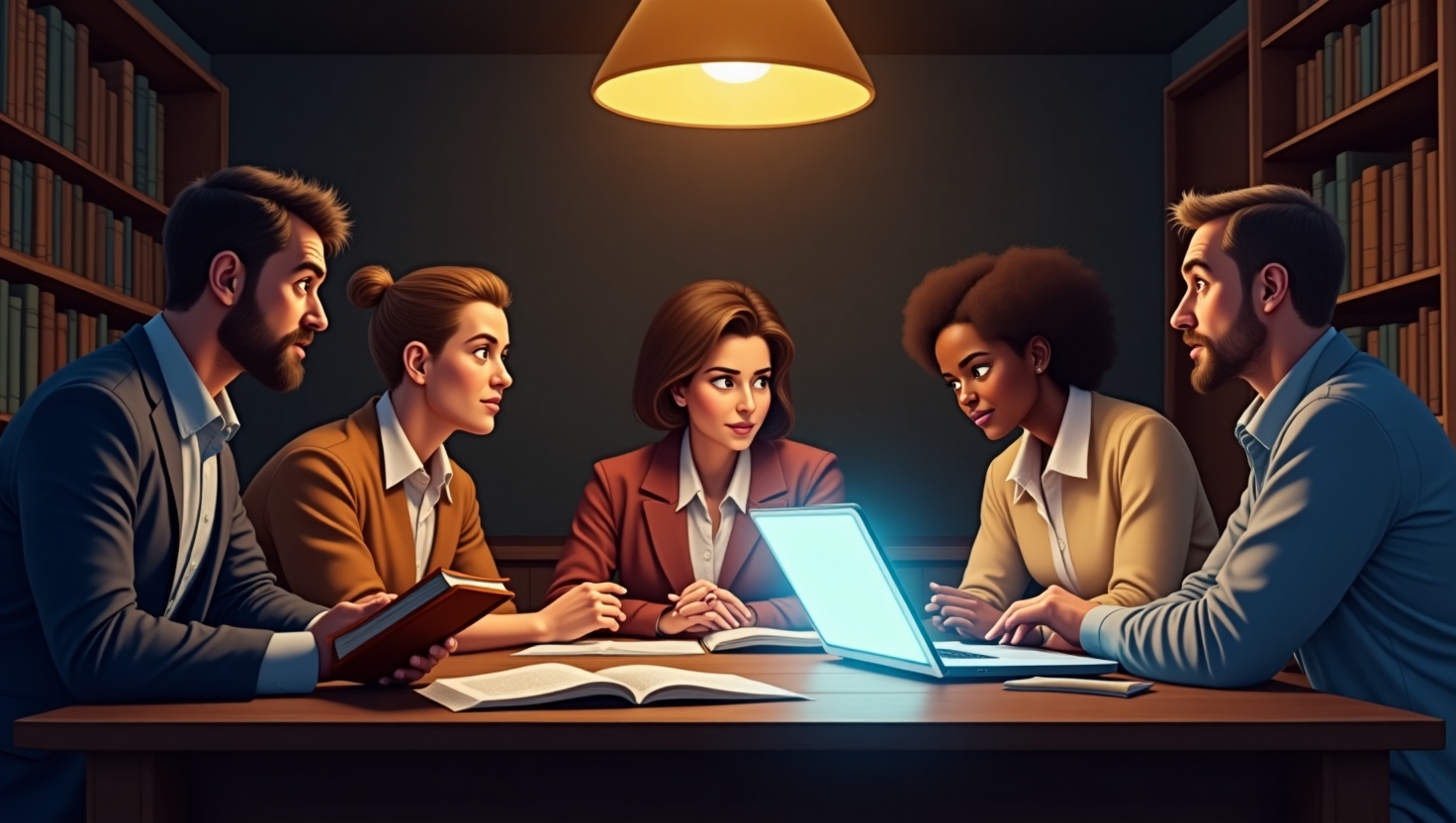AI Ethics in Publishing: Navigating the Legal Landscape
Introduction
The landscape of publishing is undergoing a seismic shift, with artificial intelligence (AI) positioning itself at the helm of content creation. However, as AI wielded its prowess, the ethical boundaries of this technological revolution came into sharp focus. What does AI ethics in publishing truly entail? With ongoing legal battles capturing headlines, it is crucial for stakeholders in the publishing industry to grasp AI copyright laws, ensuring a harmonious coexistence of technology and creativity.
In a world where AI and authors’ rights collide, understanding the legal framework is paramount. As AI becomes more entwined in producing content, how will authors retain ownership over their creative works? This conversation isn’t merely academic; it’s urgently practical. These questions bear immense implications, as highlighted by lawsuits like the HackerNoon case, which signal the complexities of AI ethics in publishing.
Background
AI has woven itself into the very fabric of publishing, with tools like the Claude LLM shaping the landscape. This sophisticated language model exemplifies how AI can generate content that is eerily similar to human creations. But at what cost? The tumultuous case of the HackerNoon lawsuit paints a vivid picture of this ethical conundrum. The lawsuit questions whether Anthropic’s use of copyrighted material, sometimes pirated, to train its AI models violates fair use laws [source].
Such cases illuminate the murky ethical implications of AI on authors’ rights and the ownership of creative works. After all, who owns the rights to a storyline crafted by an AI tool fed on a diet of countless copyrighted novels? The parameters of fair use become blurry, demanding a rigorous debate. What better metaphor than the Wild West to describe this frontier? Like pioneers, we must build laws and ethics as we go.
Trend
Emerging trends reveal a fascinating yet fraught adaptation to evolving AI copyright laws. AI companies are under immense pressure to tailor their operations, striving to adhere to the legal frameworks imposed by judicial interpretations. Courtroom decisions are becoming the new rulebooks, guiding AI’s transformative applications within permissible boundaries. But what does the public think? Increasingly, people are wary of whether AI ethical implications have been truly addressed. They’re asking, \”Is this technological marvel a friend, or a foe?\”
As illustrated by one judge’s ruling, the transformative nature of AI outputs does support a case for fair use, yet it sternly delegitimizes the use of pirated copies [source]. Such findings underline a societal push towards legal clarity. Yet, ambivalence remains. Will AI rewrite the ethos of creativity, or will we ensure human touch remains irreplaceable?
Insight
The heart of the matter lies in the nuances of fair use. These nuances are especially pronounced when determining the legal thresholds of training AI models using copyrighted material. Legal precedents highlight a deep dichotomy: the potential for AI training to be seen as a transformative process versus the outright exploitation of original works. Reflect on the judge’s discerning view that copying entire works could “destroy the entire] publishing market if that were the case” [[source]. Such startling insights reveal the high stakes of this ethical dance.
As courtrooms continue to grapple with these intricate details, the industry must anticipate how AI will define its fair use and to what extent its outputs can be considered legitimate and original.
Forecast
With ongoing lawsuits looming large, the road ahead for AI ethics in publishing remains both treacherous and rich with potential. Legal bodies are set on a course that will likely redefine copyright laws. This potential shift could fundamentally alter what it means to be an author in an AI-driven world. Will we witness new definitions of authorship and ownership that recognize AI’s contributions?
Such shifts could herald both a renaissance and a reckoning. For authors, AI could either bolster creativity or become a usurper of artistic sovereignty. For AI companies, it represents a call to innovate ethically and with a keen eye on legal ramifications.
Call to Action
As society stands at this pivotal juncture, it’s imperative that readers contribute to the discourse surrounding AI and copyright. Engage with these complex issues—not as passive observers but as active participants advocating for ethical clarity. Subscribe to stay informed about the unfolding developments in AI ethics in publishing and continue exploring how this intersection of technology and law reshapes our creative world.
Explore further with these related articles:
1. \”What Anthropic’s AI Lawsuit Means for the Future of Publishing\”
2. \”Judge Finds AI Training on Complete Books Reasonably Necessary\”
In a world in flux, your voice could help shape a fairer, more ethical digital future.

